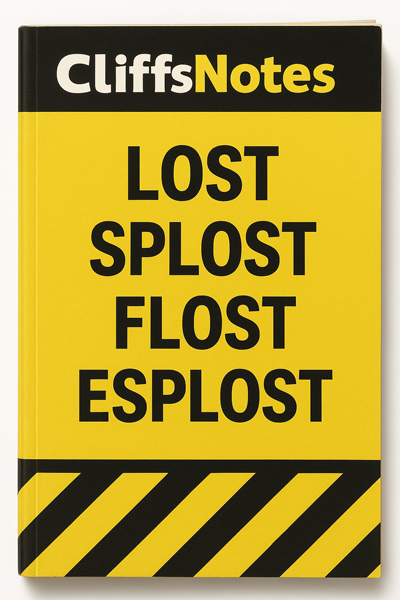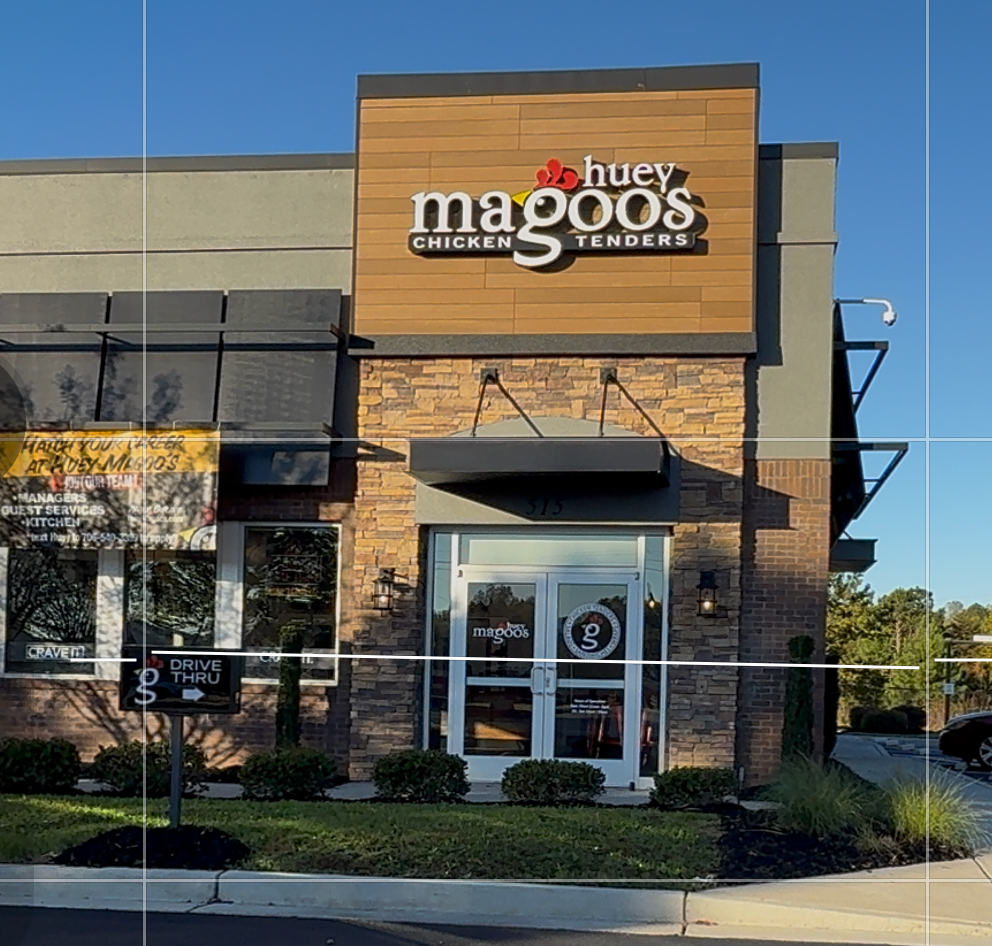When it comes to understanding local sales tax options, there are so many, it’s hard to keep track of just how each one works. Habersham News has put together a quick and easy reference to help you understand them, just in time for the elections.
LOST — Local Option Sales Tax
LOST is a 1 % sales and use tax, authorized by referendum under Georgia law.
Its primary purpose: roll back property taxes (i.e., reduce the millage/levy on property owners) by using sales tax revenue instead.
Applicability in Habersham County: As of recent discussion, Habersham County does not yet have a LOST in place.
Key point: It is general in nature (not tied to specific capital projects), and focuses on shifting some of the tax burden from property owners to consumers (including visitors) via sales tax.
Mechanism: The county (and cities) collect the sales tax, then apply the revenue toward reducing property tax rates — the “roll-back”.
Note: Even when instituted, the LOST revenue must be used for property tax relief (not, for instance, large new buildings) according to law.
FLOST (Floating Local Option Sales Tax)
- FLOST is a more recent variant: A sales tax of up to 1 % (countywide) that can be levied for a fixed period (typically five years) after voter referendum.
- Its purpose: Similar in intent to LOST — property tax relief — but created under new law (in Georgia) under House Bill 581, tied to the floating homestead exemption and other property-tax relief mechanisms.
- How it differs from standard LOST:
- Fixed term (not indefinite) — after the term ends, the tax must be renewed via referendum.
- Funds must be used exclusively for property tax relief (rather than for general operating or capital projects).
- Relevance to Habersham County: There is discussion (per news) of bringing a LOST, and mention of “floating” taxes in the county context.
- Key takeaway: FLOST is a sales tax tool specifically structured to work in tandem with property tax relief via new homestead exemption law — a “floating” solution.
Why “floating”?
Because its implementation is tied to the “floating homestead exemption” (i.e., property tax relief component) and its existence depends on certain property tax conditions. It’s a tool to shift some revenue burden to sales tax (so those buying in the county help pay) in order to lower property taxes for homeowners.
SPLOST (Special Purpose Local Option Sales Tax)
- SPLOST is a 1 % sales tax (again, requiring voter approval) whose revenue is earmarked for capital outlay projects — things like roads, bridges, public buildings, major equipment, etc.
- Purpose: Rather than property-tax relief, SPLOST funds new or upgraded infrastructure and other long-lived assets for the county and its municipalities.
- In Habersham County: SPLOST is active. For example, the county webpage states the tax is collected under agreement among the county and its municipalities.
- Key points:
- It is time-limited (typically up to 5 or 6 years) and must be approved by the voters for the period.
- Funds from SPLOST cannot be used for routine operating expenses, only for capital projects.
ESPLOST (Education Special Purpose Local Option Sales Tax)
- ESPLOST is a variant of SPLOST but specifically for school-system capital outlay — new school buildings, renovations, major equipment for schools, etc.
- It is levied similarly (1 % sales tax, referendum required) but the proceeds go to the local board of education rather than the general county government.
- Note: The ESPLOST does not count against the county’s 2% sales-tax cap in some cases — meaning counties may levy ESPLOST in addition to other taxes under state provisions.
- In Habersham County: Given the schooling system and the county’s previous references to educational local option tax (ELOST) historically, ESPLOST is relevant for the school capital side.
- Key takeaway: ESPLOST is the “capital projects for schools” sales tax, distinct from general county infrastructure, and distinct from property-tax relief taxes.
TSPLOST – Transportation Special Purpose Local Option Sales Tax
What it is
Transportation Special Purpose Local Option Sales Tax (TSPLOST) is a sales tax designed specifically for transportation-related capital expenditures—roads, bridges, transit systems.
Georgia’s Department of Revenue states that TSPLOST can be regional, single-county, or transit focused.
Key features
- Must be approved by referendum.
- Applies to dedicated transportation improvements rather than general county capital or operations.
- Because transportation projects often cross jurisdictions, sometimes regional TSPLOSTs are used.
How it applies in (or was proposed for) Habersham County
In recent years, Habersham County voters have rejected TSPLOST referendums.
Comparison Table
| Tax Type | Purpose | Term | Funds Used For | Example in Habersham |
|---|---|---|---|---|
| LOST | Property tax relief (general) | Typically indefinite (or until further referendum) | Rollback of property tax millage | Not yet implemented in Habersham. |
| FLOST | Property tax relief (tied to floating homestead exemption law) | Fixed term (e.g., 5 years) | Property tax relief only | Possible future option in Habersham. |
| SPLOST | Capital projects (county + municipalities) | Fixed term (5-6 years) | Infrastructure, buildings, major equipment | Active in Habersham County. |
| ESPLOST | Capital projects for schools | Fixed term | School buildings, equipment, etc. | Relevant for Habersham School System. |
Why this matters for residents of Habersham County
In Habersham County specifically: The fact that the county lacks a LOST (as of recent) means property owners have less relief via that mechanism than some other Georgia counties.
If you’re a property owner, you’ll care about LOST/FLOST because these can reduce your property tax burden, by shifting some of the cost to sales taxes (paid by anyone who shops in the county).
If you care about infrastructure (roads, public facilities), then SPLOST matters — because it enables major projects without necessarily raising property tax rates (though indirectly there is a sales tax cost).
For parents or supporters of local schools, ESPLOST matters — because it funds school capital improvements which might otherwise require increased property taxes or bond measures.
When elections come up asking for referendums on these taxes, it’s important to know what the tax is for, how long it lasts, and how the proceeds will be used — voter ballots often present the tax in generic form (“Shall a 1 % sales tax be imposed for 5 years for …”).
Some Tips for Residents
- Whenever you see a referendum or ballot about a 1 % sales tax, check the ballot language: is it for “property tax relief” (likely LOST or FLOST) or for “capital projects” (likely SPLOST/ESPLOST)?
- Ask: How long will the tax last? For example, a SPLOST might be 5 or 6 years; a FLOST is also a fixed term; a traditional LOST may be indefinite unless specified.
- Ask: Who shares the revenue? County only? County + municipalities? What is the intergovernmental agreement?
- Review: What will the proceeds be used for? If it’s for infrastructure, ask: will maintenance and operation costs be included (those often require property tax or other funding later).
- Keep an eye on property-tax millage rates: If a tax passes for property-tax relief, but the governing body increases budgets or the millage doesn’t roll back appropriately, property owners might not see the full benefit. (This has been noted in Habersham.)
In Conclusion
In Habersham County and across Georgia, these four acronyms — LOST, FLOST, SPLOST, ESPLOST — each represent a 1 % local sales tax (or potential tax) but with distinct purposes, durations, and uses.
- LOST & FLOST → focused on property-tax relief
- SPLOST → focused on county/municipal capital projects
- ESPLOST → focused on school-system capital projects
- TSPLOST -> focused on transportation capital projects
Being informed about which tax is being discussed, how the revenue will be distributed, and what the term is will help you understand the financial impact on you as a resident, property owner, or shopper.
If you like, I can check the current status in Habersham County as of 2025 — for example, whether a referendum is upcoming for FLOST or LOST, projected revenue, and how it might impact property taxes. Would you like me to pull that together?








